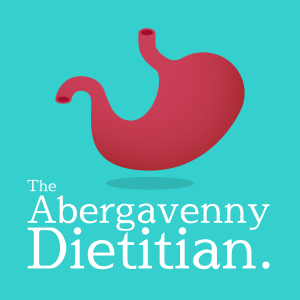What a complicated question! It’s no wonder that people get confused, as there is a lot of overlap in the symptoms experienced in these conditions, and also the foods that need to be avoided. However, Coeliac disease, wheat allergy and gluten intolerance ARE all different, and it is important to understand the differences in order to manage each condition effectively.
The main differences between the three conditions
Coeliac disease
This is not an allergy. Coeliac disease is an autoimmune disease, which causes the body to react to gluten. Gluten is just one of the proteins found in wheat; it is also found in rye and barley (some people with coeliac disease are also sensitive to oats).
Damage to the gut lining occurs when someone with coeliac disease eats gluten, and this can be seen under a microscope. If someone with coeliac disease accidentally eats gluten, they are likely to be unwell within a few hours. Symptoms can be varied but include severe diarrhoea and vomiting and can last several days.
People with coeliac disease need to be very strict – for example avoiding sharing toasters or butter.
Wheat allergy
This is a reaction to proteins found in wheat, triggered by the immune system and usually occurs within seconds or minutes of eating. Symptoms can include nausea, itching, abdominal pain, swollen lips or tongue, difficulty breathing, and anaphylaxis.
A person who is allergic to wheat must avoid all forms of wheat. They may, however, be able to consume gluten from non-wheat sources such as barley or rye.
So …..a person with coeliac disease only has a problem with the gluten – NOT the rest of the wheat. Some gluten-free products contain ‘de-glutenized’ wheat – wheat with the gluten taken out. This is fine for Coeliacs, but would be no good for a person with a wheat allergy! However a person who only has a problem with wheat can eat rye and barley – whereas a person with coeliac disease must avoid these too.
Gluten intolerance
Also known as ‘gluten sensitivity’, the symptoms of gluten intolerance may be similar to those experienced by people with coeliac disease, but it is not clear how the immune system might be involved as there are no antibodies produced and there does not appear to be damage to the lining of the gut.
Which one might I have?
If you’re wondering which one you might have, the first step is to ask your doctor for a blood test. If it comes back positive for certain antibodies, then you will need further investigations for coeliac disease. To confirm a wheat allergy, your doctor may want to perform a RAST or skin prick test.
These are the only clinically accurate tests, and there is no test or biomarker that can identify gluten or wheat intolerance (although there are many people who will try to sell you one!).
It is very important to carry on eating gluten-containing foods until you have been tested for coeliac disease, as reducing these foods can cause the test not to work. If coeliac disease and wheat allergy have both been ruled out, then food intolerances are usually diagnosed and managed by means of dietary exclusion and reintroduction trials. All these diets can be restrictive and you risk missing out on important nutrients.
The Abergavenny Dietitian
Before you embark on a change to your diet, it’s important to know exactly what you are dealing with so you don’t make mistakes or unnecessary restrictions! A HCPC-registered dietitian such as myself can help you with this. I will be covering food allergy testing in a future blog post. In the meantime, please do get in touch if you would like help with following a wheat- or gluten-free diet.
Disclaimer: All content found on this website, including images, videos, infographics and text were created solely for informational purposes. This content should never be used for the purpose of diagnosis or treatment of any medical conditions. Content shared on my website is not meant to be used as a substitute for advice from a regulated medical professional. Reliance on the information provided on my website as a basis for patient treatment is solely at your own risk. I urge all my customers to always consult a doctor or a regulated medical professional before implementing any of the advice found on these blogs.


